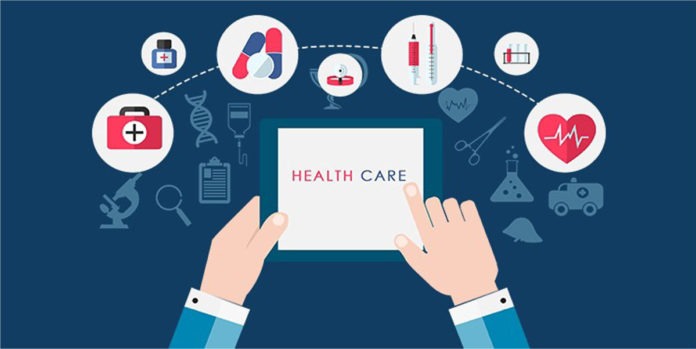Healthcare has long been considered a recession-proof industry, but no industry is COVID-19 proof. While the healthcare industry was impacted by unemployment due to the crisis, it continues to be a high-demand sector and is projected to regain full employment as we continue to reopen.

Not all industries will rebound as quickly. Businesses related to tourism, food service, hospitality and retail may have a longer road back to full employment, leaving many former employees searching for new careers.
This is an opportunity for the workforce system to infuse new talent into the healthcare industry. By sharing information about healthcare opportunities and career pathways with workers laid off from jobs in other industries and youth who are new to the workforce, we can build a pool of talent for the region’s healthcare industry and ensure individuals have access to the sector’s myriad career options.
Healthcare companies may be interested to know about the workforce system process to help individuals move from initial inquiry to job placement with local organizations.
Pathway to healthcare: Many individuals picture healthcare careers as doctors and nurses and requiring years of school. While this is true for some healthcare professions, many opportunities exist in dental, behavioral, pet health and long-term care. Some positions are patient-facing while others focus on technology, customer service or administration. Our overall goal is raising awareness of these pathways and helping job seekers and youth see what is possible.
Focus on skills: Based on their industry experience, many job seekers will have transferrable skills that align directly with positions in healthcare. These include, but are not limited to, attention to detail, focus on the customer, team oriented, relationship builder, conflict resolver, communication skills, strong work ethic, patience, flexibility and time management.
Assessment: To identify skills and interest levels, the local WorkSource centers typically use two common career assessments: Traitify, an image-based interest test and the Berke Assessment, which is used to gather objective data about job candidates and provide insights on transferrable skills and inherent interests.
Education and experience development: As job seeker interests become more focused, opportunities exist to hone skills, which will help these job seekers stand out above their peers when being considered for positions and provide companies with skilled talent. They include:
- CareerWorks Medical: an eight-week introductory course to medical office experience, geared toward individuals with little or no office or administrative experience
- Online Medical Terminology: entry-level courses to develop a base knowledge
- Microsoft Office Essentials: learn and use basic Microsoft tools and keyboarding to enhance skills and experience
- SummerWorks Internships: helps businesses connect with youth during their summer break and provides youth with work experience
Training and degree programs: Our area is fortunate to be home to outstanding educational and training institutions providing access to healthcare educational pathways requiring certification and/or licensing to those requiring a degree:
- Short-term programs for certification or licensing: Dental Assisting, Nursing Assistant Certified, Patient Access Specialist, Community Health Worker programs will get graduates up and running, with actual job placement within a few months.
- Healthcare apprenticeships: For job seekers who need a paycheck as they gain skills, there are two approved Healthcare Apprenticeship programs: Medical Assistant and Central Sterile Processing Technician. A third option, the Pharmacy Technician Apprenticeship, is up for final review in July. These apprenticeship programs will have cohorts starting in late September/early October.
- Longer-term programs: For job seekers looking for Associate Degree or higher degreed programs, Clark College, Lower Columbia College and Washington State University Vancouver have robust healthcare educational pathways.
Employment Readiness: When a job seeker is ready to begin their search process, our community partners work with them on building a resume, developing interview skills related to their field of interest, assisting with job placement and networking to build their local connections to employers.
Through this pathway, from initial inquiry through job placement, the workforce system keeps the pipeline full so healthcare organizations have the workers they need to continue serving our community, even during this COVID-19 crisis.
Job seekers interested in learning about healthcare opportunities should contact Karin LaValla at WorkSource, 360-735-4957, klavalla@esd.wa.gov.
Healthcare companies wanting assistance with your healthcare workforce needs can contact Sean Moore at Workforce Southwest Washington at smoore@workforcesw.org or 360-762-8569.
Sean Moore is the Senior Project Manager for Healthcare at Workforce Southwest Washington (WSW). Reach him at smoore@workforcesw.org or 360-762-8569.
Workforce Southwest Washington (WSW) funds services that help individuals gain skills to find a good paying job or advance in their careers and help companies attract, train and retain workers. Our investments strengthen the region’s businesses and contribute to a strong economy. Since 2003, we’ve invested more than $100 million in Clark, Cowlitz and Wahkiakum counties. Learn more at www.workforcesw.org.




